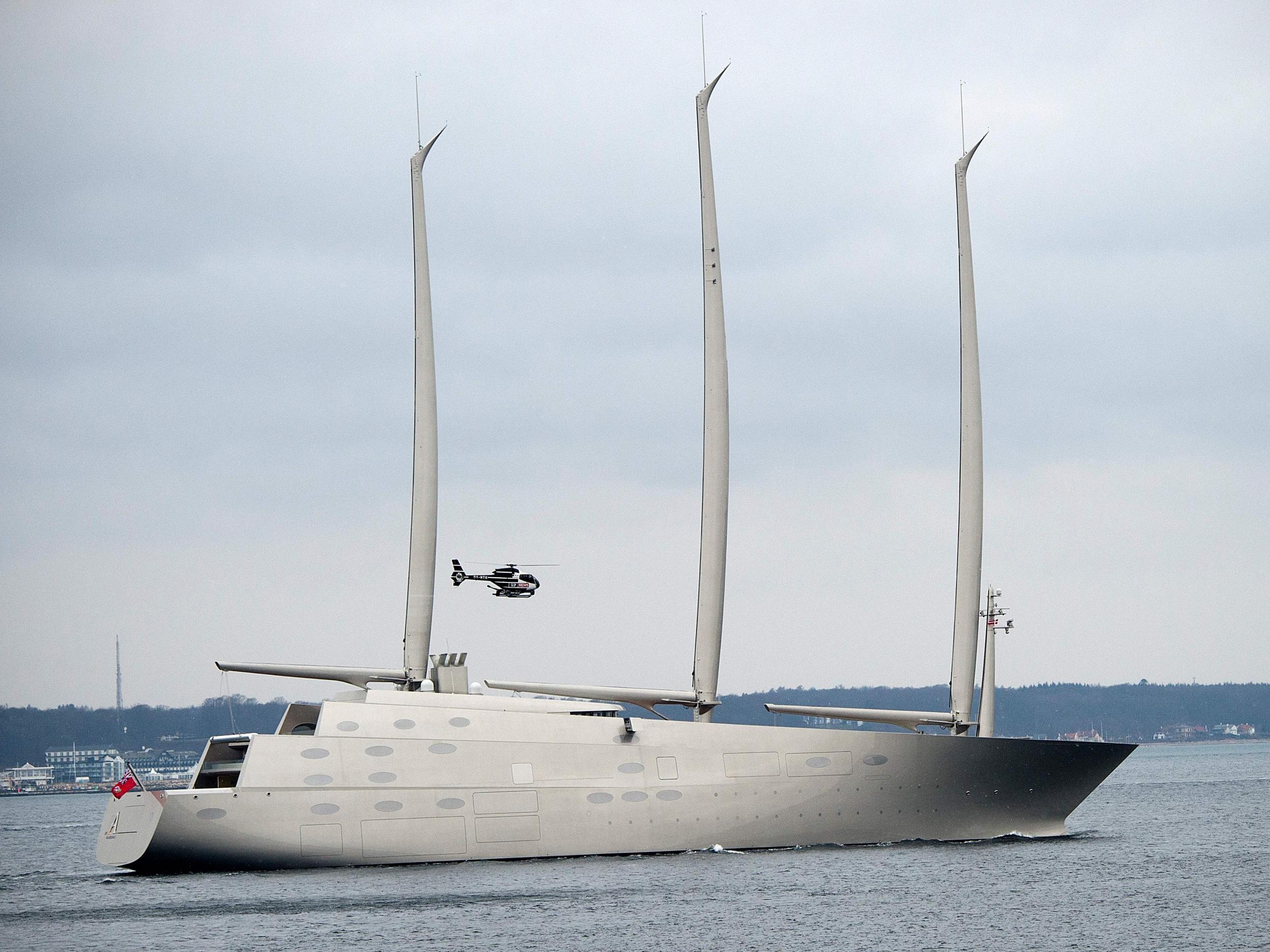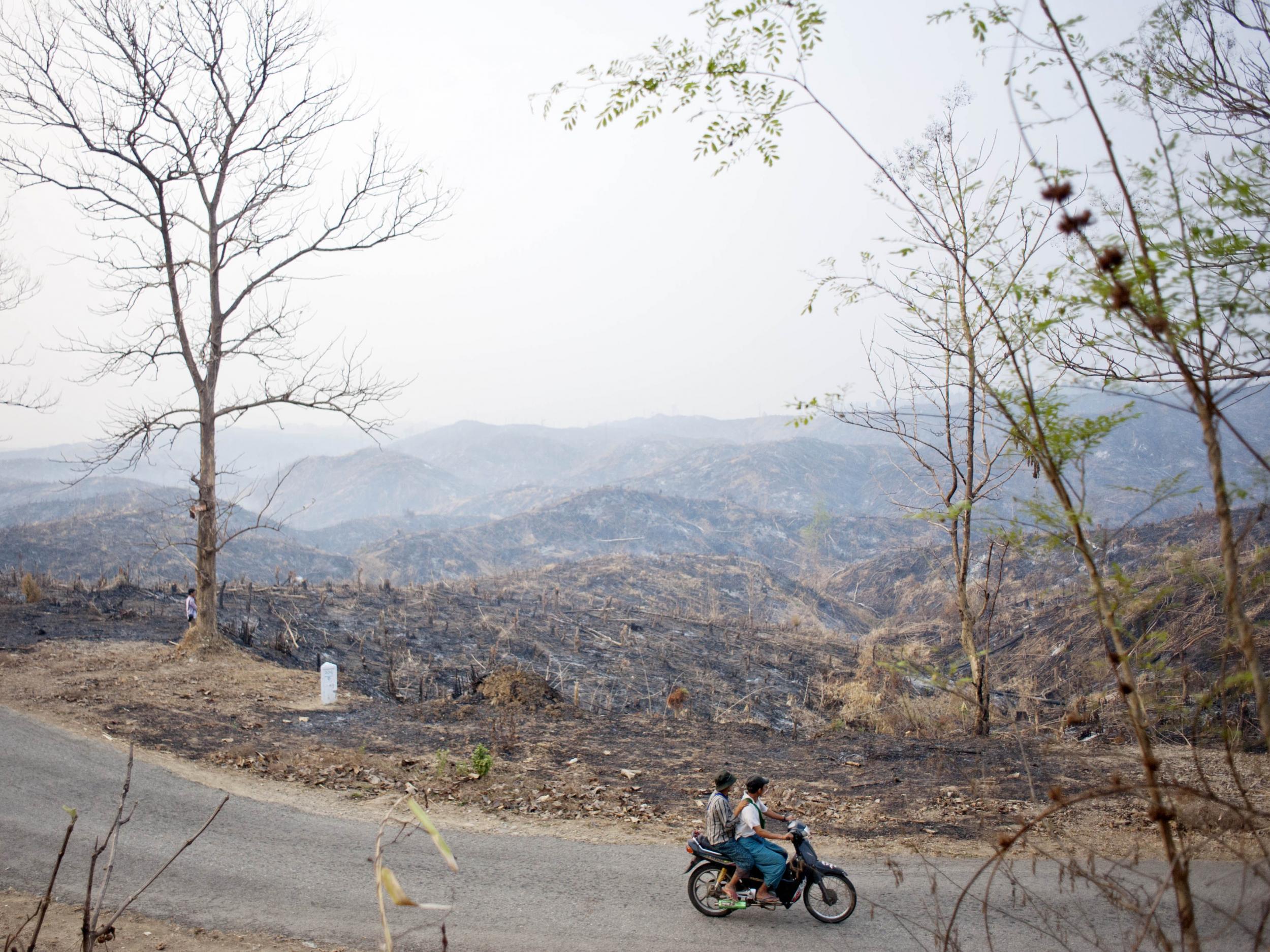One of world's biggest superyachts 'built using illegal Burmese timber'
Wood likely to have come from forests in Myanmar which are being cut down at an alarming rate despite ban on export of raw teak

A German shipyard used illegally-sourced teak from Myanmar to construct a superyacht for a Russian billionaire, a public prosecutor has claimed.
Nobiskrug shipyard on the river Eider used wood supplied by a Burmese government-controlled firm which was sanctioned earlier this year for exporting teak from threatened forests, lawyer for the state Axel Bieler said.
Timber experts analysed samples of wood used in the construction of Sailing Yacht A, a 143-metre sail-assisted motor yacht believed to be among the largest in the world, and determined from examining the composition and ring structure that it did not come from a legal plantation.
Instead, it is likely the tropical hardwood came from forests in Myanmar, which are being cut down at an alarming rate despite a national ban on exporting raw teak, Mr Bieler told German news agency DPA.
Since 2010, Myanmar – one of only four countries in the world where teak trees grow naturally – has lost more than 1.3 million acres of forest on average each year, according to a report by the UN’s Food and Agriculture Organisation.
Mr Bieler said it was unclear whether the illegal origin of the wood, which was sold by Myanmar Timber Enterprise (MTE) through Spanish supplier Teak Solutions, was known to the shipyard.
Allegations that the teak was logged illegally were first raised by the London-based NGO the Environmental Investigation Agency in October 2016.
After a two-month investigation, the EIA accused Teak Solutions, along with eight other European suppliers, of willful ignorance on the source of their timber.
The organisation said at the time: “EIA identified a shipment of 1,278 pieces of teak costing 174,750 euros ($186,000) being used aboard the yacht. This was one of many shipments from Myanmar by Teak Solutions, imported in direct violation of the European Union Timber Regulation (EUTR).
“All nine companies failed to identify or verify the source of the teak, a clear right to harvest or information that might mitigate the risks of harvesting in violation of relevant forestry provisions."
Teak Solutions bought the timber from Myanmar Timber Enterprise (MTE), a state-run wood trading company that was recently sanctioned by Denmark for supplying teak of dubious-origin.

At the time, Teak Solutions CEO Mike Kimble told German newspaper Der Spiegel his Burmese imports were legal and met EU regulations, saying dealing with MTE was the “safest” way to source the wood.
The shipyard told local newspaper Kieler Nachrichten: “We support the investigations of Kiel's public prosecutor and we are cooperating fully with the authorities. We have a great interest in quickly disproving the allegations, especially since the Federal Agency for Agriculture and Food halted similar investigations in the same case against us last year.”
The criminal investigation led by Mr Bieler is ongoing.
Almost two per cent of the Myanmar's forest cover was lost each year from 2010 to 2015, or eight-and-a-half per cent over the five years.
In March, MTE released a statement saying it would take steps to address illegal logging and its associated trade.
The tropical hardwood is prized by boat builders for decking because it is strong, easy to work with, resistant to rot and does not shrink.
Sailing Yacht A, which is estimated to have cost more than £350 million, was built for Russian billionaire Andrey Igorevich Melnichenko, who owns energy and fertiliser companies.
Mr Melnichenko, who has an estimated net worth of $13.4 billion (£10.8 billion), is said to favour naming his vessels 'A' so that they are listed first in shipping registers.Sailing Yacht A, which was has three 300ft masts that are taller than Big Ben's tower, is Mr Melnichenko's second yacht by French designer Philippe Starck — his first is Motor Yacht A.
The German shipbuilder's website described the eight-deck yacht as “the most advanced sail-assisted superyacht ever built”. The luxury sea-cruiser features a helipad, onboard swimming pool, and underwater observation pod.
A spokesman for the owner of Sailing Yacht A said: "We are extremely disappointed that the high profile of Sailing Yacht A is being used by others to raise an issue which has nothing to do with the yacht or the owner. This issue is for the shipyard and supplier of the teak."
Join our commenting forum
Join thought-provoking conversations, follow other Independent readers and see their replies
Comments
Bookmark popover
Removed from bookmarks